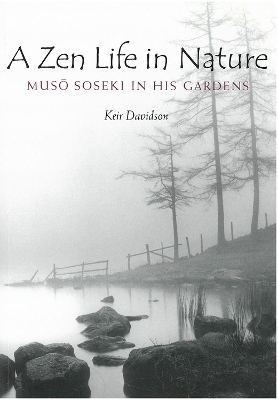Michigan Monograph Series in Japanese Studies
1 total work
A Zen Life in Nature examines the design style and aesthetic of the medieval Japanese Zen monk Musō Soseki (1275–1351), who built gardens as places to meditate and to escape his busy public life. The book begins with a discussion of Soseki’s rural upbringing and spiritual background, his quest for enlightenment as a Zen monk, and his role as mediator in the turbulent times that surrounded the Kemmu Restoration and the establishment of the Ashikaga shogunate. Other chapters look in detail at the spiritual and cultural influences that are crucial to understanding Soseki’s artistic and design sense and the development of his garden building. Finally, the book provides a detailed look at the beautiful Upper Garden at Saihōji, built by Soseki in 1339.
A Zen Life in Nature should appeal to a broad audience, including students of medieval Japanese history and religion, those interested in Zen Buddhism and Zen gardens, and people with an interest in garden design.
